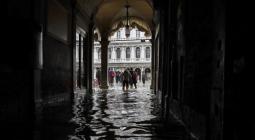Climate crisis? Nah...fake news. It's just a hoax, Trump knows best.
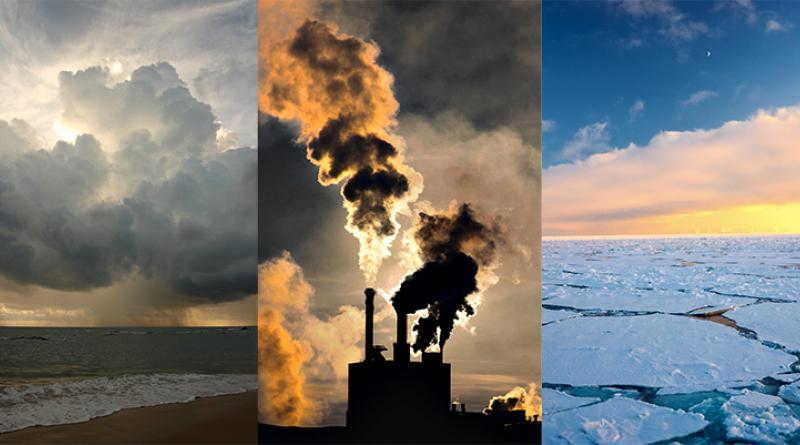
Planet is entering ‘new climate regime’ with ‘extraordinary’ heat waves intensified by global warming, study says
36 Die in India Heat Wave, Delhi Records Its Highest All-Time Temperature
Four elderly pilgrims died while riding in a non-air-conditioned train car as India's deadly heat wavecontinues, The Times of India reported Tuesday.
The four, aged between 69 and 81, had been returning from the holy city of Varanasi to Kerala in the south, The Independent reported. Railway official Manoj Kumar said they collapsed in their carriage and were pronounced dead by doctors waiting at the Jhansi station.
The deaths come as the total number of fatalities in one of India's most intense and longest-lasting heat waves has reached at least 36, The New York Times reported Wednesday. Temperatures have soared to 50.6 degrees Celsius (123 degrees Fahrenheit), and the high temperatures are expected to impact 23 states this year, up from nine in 2015 and 19 in 2018, India's National Disaster Management Authority expert Anup Kumar Srivastava said.
"This year, the number of heat wave days [has] also increased — and it's not just day temperature, night temperatures have also been high," Srivastava told The New York Times.
India has increasingly suffered from extreme heat in recent years. 2018 was the country's sixth hottest year on record, and 11 of its 15 warmest years have occurred since 2004, The Independent reported. The capital of New Delhi broke its all-time record Monday with a high of 48 degrees Celsius, according to The Times of India
"Science as well as our subjective experiences has made it unequivocally clear that longer, hotter and deadlier summers are poised to become the norm due to climate change," environmental researcher Hem Dholakia wrote, as The Independent reported.
This year's heat wave has closed schools and universities, prompted authorities to use water to cool baking streets and forced police to guard water tankers in Madhya Pradesh state after fights over supply turned deadly, The Independent reported.
In one shocking incident, around 15 monkeys died in Joshi Baba forest range in Bagli, Dewas, Madhya Pradesh. Forest officials think they might have died of heat stroke after another group of monkeys prevented them from accessing the closest water source, India Today reported.
Overall, however, the death toll from India's heat waves has actually decreased in the last four years. More than 2,000 people died in 2015, but that number fell to 375 in 2017 and 20 in 2018, The New York Times reported. Officials say this is because the government has made an effort to reduce the death toll by encouraging residents to reduce or alter the time spent working on hot days and by providing free drinking water to hard-hit populations. However, Srivastava said the government's resources had been taxed this year by the country's huge national election.
The current heat wave may drag on, as monsoon rains have been delayed this year.
(ecowatch)
China flood death toll hits 61, 350,000 evacuated - ministry
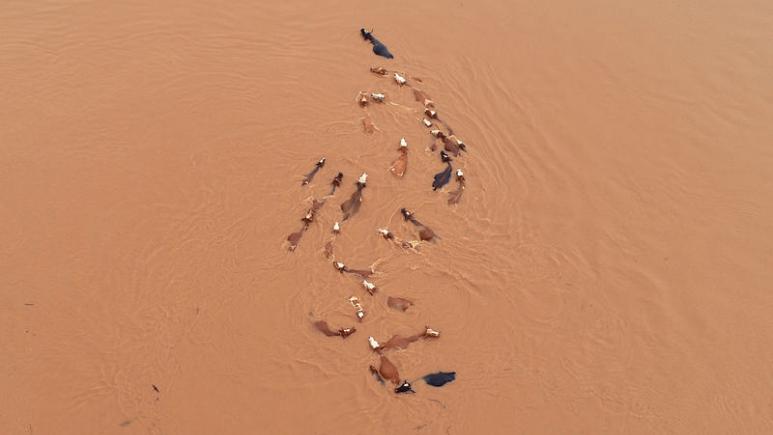
SHANGHAI – As many as 61 people have been killed and 356,000 evacuated from their homes as heavy rain and floods swept through large parts of southern and central China this week, Chinese rescue authorities said.
In a notice published late on Thursday, China’s Ministry of Emergency Management said 9,300 homes have collapsed and 3.71 million hectares of farmland damaged during the floods, with direct economic losses now estimated at 13.35 billion yuan ($1.93 billion).
It said more than 4,300 people had been rescued from floodwaters, which have affected regions stretching from Guangdong province in the southeast to southwest China’s Chongqing on the upper reaches of the Yangtze river.
During the summer, China routinely suffers from droughts in the far north and floods in the south. The emergency ministry has warned that northern regions face even lower precipitation levels this year, while heavy rains are expected to raise flood risks on the Yellow river’s upstream.
(euronews.)
British Columbia: drought fears surge as rivers dry up across the province

‘That water is going to be gone later in the summer,’ says Dave Campbell of the River Forecast Centre.
Extreme hot dry weather has left streams and rivers across the province running low and that's creating drought conditions more commonly seen in late July.
On June 12, temperature records for many places in B.C. were broken — with highs not seen in some spots in a century. Provincial drought monitors say this kind of weather is leaving many waterways at record-low flows, fuelling fears over everything from fire risks to salmon survival.
David Campbell who heads the River Forecast Centre for the province says seeing drought ratings this high in June raises obvious concerns for July and August.
'Kind of shocked'
"If this kind of weather persists, we are going to be in challenging situations as we get into the later part of the summer," said Campbell who urges people to start conserving now, especially in places that rely on local streams or rivers.
"That water is going to be gone later in the summer," he said.
In an average year, Campbell says the drought map of B.C. would be the colour green, the code for normal. But most of the province is a bright yellow, the code for dry. The northeast corner of the province or Fort Nelson zone and Vancouver Island is shaded ochre or orange for very dry. Only three zones remain green: Lower and Upper Columbia and the West Kootenay.
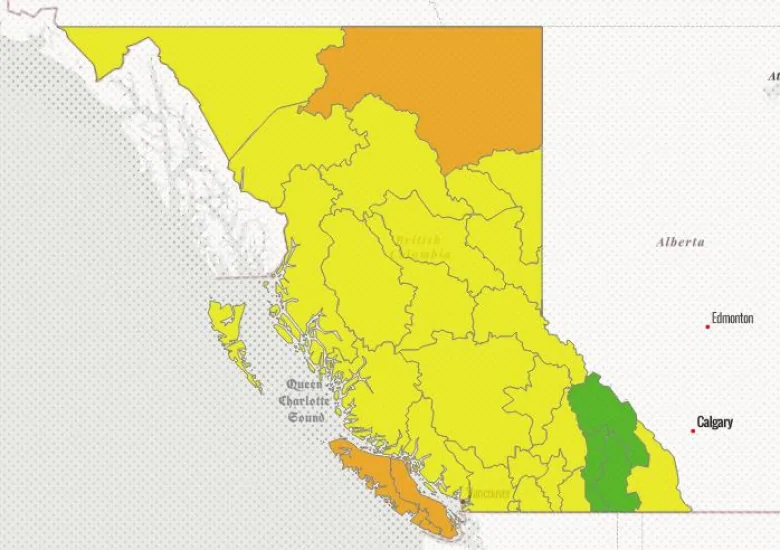
Campbell says this is the fifth year of a pattern of drought that used to be something seen every 10 or 20 years.
Rivers 'extremely low'
"I tend to be kind of shocked," he said. "All of the rivers across the province are extremely low for this time of year. We are coming into conditions that we haven't really seen at all — or certainly not that often."
Campbell says the statistics are being tallied again Thursday and the map will soon change, but he's not forecasting any more green for normal. He predicts it will be worse.
That's elevated concerns about already vulnerable salmon that need the tributaries to get into the rivers to spawn in late summer, when the drought is expected to be at its worst.
Chinook salmon returns to Duncan-area streams and rivers are watched closely by anglers and provincial officials. Federal fishing closures were introduced earlier this year to protect salmon, including a catch-and-release rule until mid-July on many parts of Vancouver Island.
The Cowichan River and Lake Stewardship Society has already started a rescue operation for fry stranded in fast-desiccating rivers and creeks in the Cowichan watershed on Vancouver island.
On the wildfire front, tinder-dry crisp forest floors are already a hazard, and now with a potential lack of water, fire officials say homeowners are edgy.
"We are certainly worried about it and we are watching real close," said Doug Knott the fire chief in Lake Cowichan in an interview with CBC on forest fire risks.
He says he has noticed people now call fire officials at the first whiff of smoke.
(cbc)
Locusts destroy crops in 'worst invasion in Sardinia for 60 years'

A huge plague of locusts is wreaking havoc on the Italian island of Sardinia in the worst insect invasion in more than 60 years, local media report.
Large swarms are destroying crops and invading homes in Ottana and Orani in the central province of Nuoro.
More than 2,000 hectares of farmland has been destroyed by "blankets" of the insects, reports said.
The locust invasion has been linked to a recent rise in temperatures after months of cooler weather on the island.
"There are millions in the countryside," the Italian farmers' association Coldiretti warned in a statement on Monday.
"The locusts emerge on uncultivated land, but then they go to cultivated land to eat," the group said, adding that there was little that could now be done to remedy the situation.
At least 12 farms have been affected, with animal grazing pastures ruined and "little left to harvest", Italy's La Stampa newspaper reported
Locusts usually appear on the Mediterranean island of Sardinia in the summer months, between June and August.
On the mainland, Northern Italy is also battling a plague of brown marmorated stink bugs, which are destroying swathes of fruit trees, Coldiretti added.
(bbc news)
UK floods: Homes evacuated in state of emergency and travel disrupted.
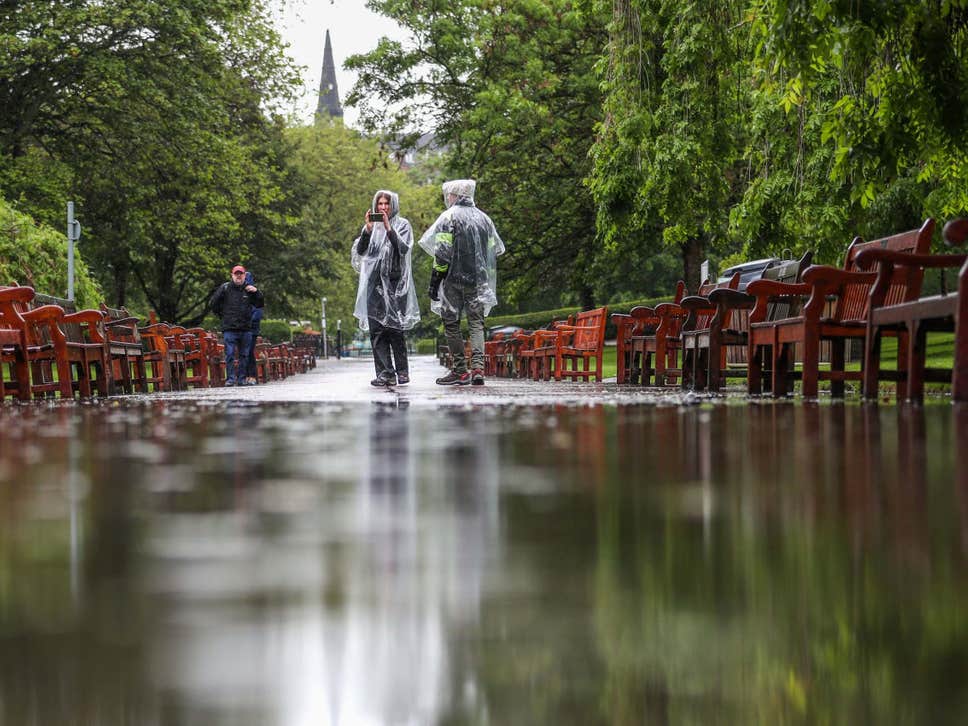
Homes were evacuated and rail services were disrupted as torrential rain brought flooding to parts of England.
The RAF was called in at Wainfleet, Lincolnshire, when the River Steeping burst its banks after three days of downpours, with water reportedly rising to about 2ft. People were forced to leave about 100 homes.
The county council issued a state of emergency, saying the flooding posed a risk to residents, and the RAF was asked to plug the breach in the river bank.
Lincolnshire and Shropshire were among the worst hit counties.
But with many areas across the north of England and Midlands also being drenched, passengers became stuck on a flood-hit train in Northamptonshire.
A landslide caused by the rain flooded the railway near Corby. A second train was brought in to move the passengers.
Many roads were flooded around Redditch, Worcestershire, where drainage and highways experts tackled impassable routes and where train services were disrupted.
The Environment Agency had issued dozens of flood warnings and alerts across the UK.
Most were across the Midlands and Northwest, although they extended as far as north as Northumberlandand south to Christchurch inDorset.
Rail services between Skegness and Boston have been suspended until Saturday due to flooding, while Merseyrail has cancelled some trains on the Chester and Ellesmere Port lines because of water on the tracks.
Motorists including a minibus of Indian tourists became trapped at Lambley, near Nottingham, overnight and were taken in by local residents.
Resident Malcolm Bamford told the BBC: “We had two in our house and the neighbours had three, and then there was a group of about eight Indian tourists in a little tiny bus and they all wanted to use the toilet.”
National Rail Enquiries said heavy rain had flooded the tracks between Whitlocks End, near Solihull, and Stratford-upon-Avon.
Waddington in Lincolnshire had nearly 40mm fall over 14 hours, while Coleshill in Warwickshire had 30mm and Astwood Bank, Worcestershire, had 31mm.
(INDEPENDENT)
14 June 2019
=========================
Compilation
Yannis Tsipouridis


